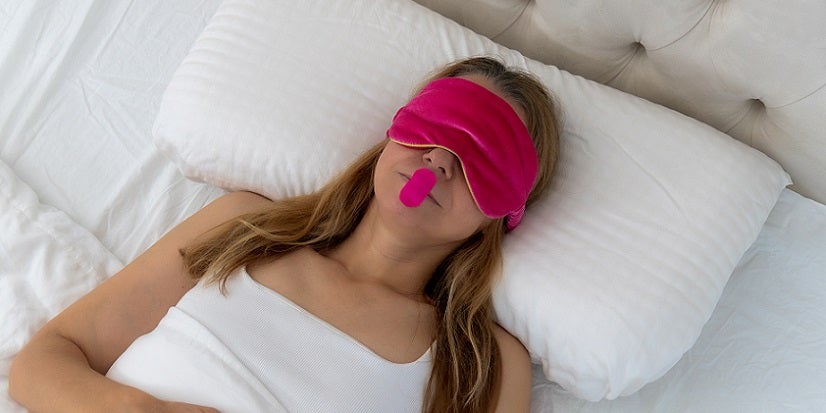
If you’ve scrolled through social media lately, you’ve probably seen people taping their mouths shut before bed. It’s a trend called mouth taping, and yes, it’s exactly what it sounds like. The idea is to encourage nose breathing by keeping your lips sealed while you sleep. But before you grab a roll of tape, let’s break down whether this nighttime ritual is really a dream come true or more of a sleep-depriving nightmare.
Supporters of mouth taping say it helps reduce snoring, prevent dry mouth, and even ease mild sleep apnea. Some folks claim they sleep better and wake up feeling more refreshed. Sounds great, especially if you or your partner are desperate for a quiet night’s sleep. But here’s the catch, there’s not a lot of solid science backing these claims.
While the benefits might sound tempting, there are a few things to consider before you jump on this bedtime bandwagon:
- There’s limited scientific evidence. So far, no large studies prove that mouth taping is safe or effective.
- It can actually make sleep apnea worse. If your airway is already restricted, taping your mouth shut might do more harm than good.
- It can block airflow. If you have allergies, sinus issues or a stuffy nose, closing your mouth could make breathing more difficult and lead to discomfort or even panic.
- It can cause skin irritation. Some people experience redness or a rash from the adhesive around their lips.
- It might lead to mouth puffing. Your body still tries to breathe through your mouth, creating a puffing effect that can be noisy and uncomfortable.
Mouth taping might sound like a simple fix for snoring or dry mouth, but it’s not a one-size-fits-all solution. If you're thinking about trying it, especially if you have sleep apnea or any respiratory concerns, talk to your doctor first. There may be safer and more effective options to help you get the restful sleep you deserve.




